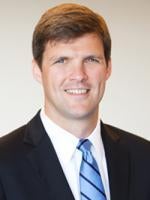Thanks as always to Squire Patton Boggs Sixth Circuit Fellow Kirk Mattingly, EIC of the UofL Law Review, for his help with this and other content.
During a wild fortnight leading up to today’s announcements that courts would close to the public or shut down entire civil dockets, the Sixth Circuit has stayed busy. Whether you’re catching up on the court or just looking for reading material during an extended spring break, here are a few highlights:
-
The en banc court sat Wednesday to consider the constitutionality of Ohio’s restrictions on doctors who knowingly perform abortions motivated by a prenatal Down’s Syndrome diagnoses. Ohio SG Ben Flowers, DOJ Civil Rights Division attorney Alexander Maugeri, and Jessie Hill of ACLU-Ohio argued.
-
The special master spearheading the so-called “negotiation class” in the opioid MDL passed away. Judge Polster announced his replacement: Professor William Rubenstein of Harvard Law School, a civil procedure expert who helped guide the NFL concussion settlement. Rubenestein replaces the late Francis McGovern of Duke Law. RIP.
-
The court heard still another attempt—in Lebamoff v. Snyder—to chip away at state “three-tier” laws governing the manufacture, distribution, and sale of alcohol under the 21st Amendment. The presiding judge was Judge Sutton, the noted federalist who dissented in the Sixth Circuit’s last major Dormant Commerce decision, later affirmed by the Supreme Court, to three-tier laws in Tennessee Wine v. Byrd.
-
The takedown of “Rooferees” owner and NCAA referee John Higgins by UK basketball fans will not result in liability for the ubiquitous KentuckySportsRadio.com, which (according to plaintiffs) encouraged the online and telephonic harassment of the ref’s Omaha roofing business. This appeal in Higgins v. KSR, near and dear to many in Big Blue Nation after an appalling last-second Elite Eight loss to UNC, was argued—ironically—at the University of Louisville.
-
Judges Thapar and Kethledge called for the reconsideration of the Supreme Court’s “de minimis cost” defense, from the 1977 decision in TWA v. Hardison, for employers defending religious-accommodation claims under Title VII. Equating the statutory language of “undue hardship” with the judicial gloss of de minimis cost, the concurrence suggested, is a tall task, perhaps best explained by the Hardison majority having
“stumbled through the looking glass and into ‘an Alice-in-Wonderland world where words have no meaning[.]’ Welsh v. United States, 398 U.S. 333, 354 (1970) (Harlan, J., concurring in the judgment).”
Stay safe, stay sane, everyone.
“I knew who I was this morning, but I’ve changed a few times since then.” – Alice




 />i
/>i
